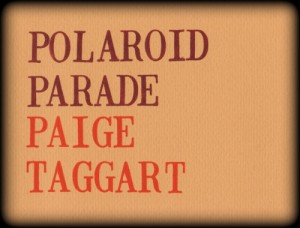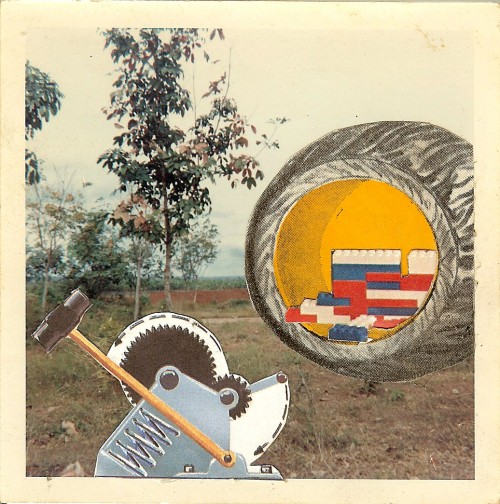Want For Lion by Paige Taggart
 Want For Lion
Want For Lion
by Paige Taggart
Trembling Pillow Press, 2014
116 pages / $16 Buy from Trembling Pillow Press or Amazon
“I’ve always demanded more from a sunset,” says Charlotte Gainsbourg in Lars Van Trier’s Nymph()maniac. ‘Sunset’ being beauty at a distance, untouchable object of desire, lion in a cage. Gainsbourg’s character wants to throw punches, to participate in beauty’s creation. No way to interact with a sunset other than blind admiration. No way to intensify pleasure, or ruin it.
Paige Taggart shares this relationship to beauty. It’s not beauty until you draw blood. In Want For Lion, she wages war on meticulousness, employing a poetics of action, a space where beauty stems from ambition and the art of mistake-making. “There are rooms for mistakes, that shit is human, and land, and plant. Like a quilt of gold floating down the river.”
Beauty is not striking a golden pose, but falling well. I recently fell of my bike, completely unprompted, in the middle of a four way intersection, all the cars stopped at the red. A pedestrian asked if I was hurt, shaking his head, holding in laughter. I waved, “Only my pride!” How beautiful could my fall have been had I been wrapped in a quilt of gold?
*
In the section “Starts with Herds,” Taggart starts three poems with the same phrase, each time breaking it differently:
care about nothing
then care about everything
–
care about nothing then
care about everything
–
care about
nothing
then care
about everything
September 12th, 2014 / 10:00 am
She Makes Dinner Her Vocabulary: a Review of Paige Taggart’s Polaroid Parade
 Polaroid Parade
Polaroid Parade
by Paige Taggart
Greying Ghost Press, 2011
Currently Sold Out (Book Page at Greying Ghost)
Can one person constitute a chorus? Can a chorus be composed of your lungs, the highest cloud, and a blue flame? Paige Taggart’s Polaroid Parade captures the procession of an adamant, demented song of departure and alterity: the battle to fracture and move meaning along with our horns and feathers and fallen hands. This collection shines with the allure of commodity culture and entertainment—ravishing storefronts, “a gentle circus,” after-parties, the “tilted banquet”—while at the same time it undermines and challenges this very structure through an avalanche of precise, pollinated images that subtly warn us of the threat in becoming an “unsubstantial paper-doll.” By immersion and then departure, these poems lead us to a new space where we no longer expect anyone to inherit or claim ownership, where our hands finally release the “spoon” that “cradles every object that surrenders to it.”
Through a revolving door of vocal pronouns, Taggart critiques the darker underbelly of connectivity and community, its inextricable link to agreement, accumulation, and waste. Within the first few pages, the chorus breaks into a gated neighborhood, builds a house from clipped paper, and no one slows down on the seventh day to nap. Instead, “We tapped the ground, put speakers under the dirt, covered it back up, then proceeded to play music and girls would come over and shake their bellies then walk away, back to the sand pits.” How quickly we form new communities and patterns over the ruins of similar but failed routines and complicities. Excess abounds, and the reader is told, “we are children in jeans, we have speakers through our thumbs, we are loud and incommodious, we have, we have, we have, villages.” And a singular voice claims, “I’m always in love with five people at once.” Yet, “the warm cycle never sterilizes our predicament” and bright, startling images infect/replicate the rapid production of new commodities to reveal the empty chill of these engagements: “embraces backfire through the windmill.” We see the danger in “calling shotgun to every justifiable cause.”
In our contemporary capitalist experiment of acceleration and disposability, Taggart shows us how quickly identity is shaped in relation to the surrounding objects. Both product and detritus touch us, are connected and therefore mimetically looped. Taggart writes, “Her character is in the carpet…her character is Maybelline, her eyes are Georgia. Her teeth are puzzles, with pens in her mouth she records you, over there, having a picnic.” This main character surfaces and takes shape as pastiche or collaged culture. Thus, animate and inanimate blur and recognition becomes an alarming process/parade. As gender, too, is controlled through these heaps of possessions and garbage, a struggle emerges to repel product in order to allow the unnamed, young female character to find an escape hatch in this mimetic Mobius strip. We fear for her, because as Taggart ominously articulates, “Inside Polaroid you can observe luxurious edges, understand being boxed.” Instead of connection and coalescence, we root for the sloughing off of wares and reflections. I’m reminded of a line from the beginning of The Maximus Poems when Olson laments that we are “in the present shame of, / the wondership stolen by, / ownership.” In Taggart’s landscape, tensions arise from the inextricable relationship between the thrill of existence taking shape, and then this form as recognizable and commodified. Language itself must daringly find a way to renew and embody wondership without being co-opted by ownership.
February 18th, 2013 / 12:00 pm
Books Without Covers
“The Internet” by Eric Amling
Here are the names of some manuscripts I’m reading with observations about the content of each manuscript and sample poems (the picture above has nothing to do with this post, except that it’s a collage by Eric Amling that I like). It would be rad if other people blurbed about manuscripts they are reading (their own or their friends or whatever). Feel free to share poems from other unpublished manuscripts in the comments. Also, if any publishers would like to contact the poets mentioned in this post in order to read their manuscripts for possible publication, please let me know and I’ll forward your requests to them.

